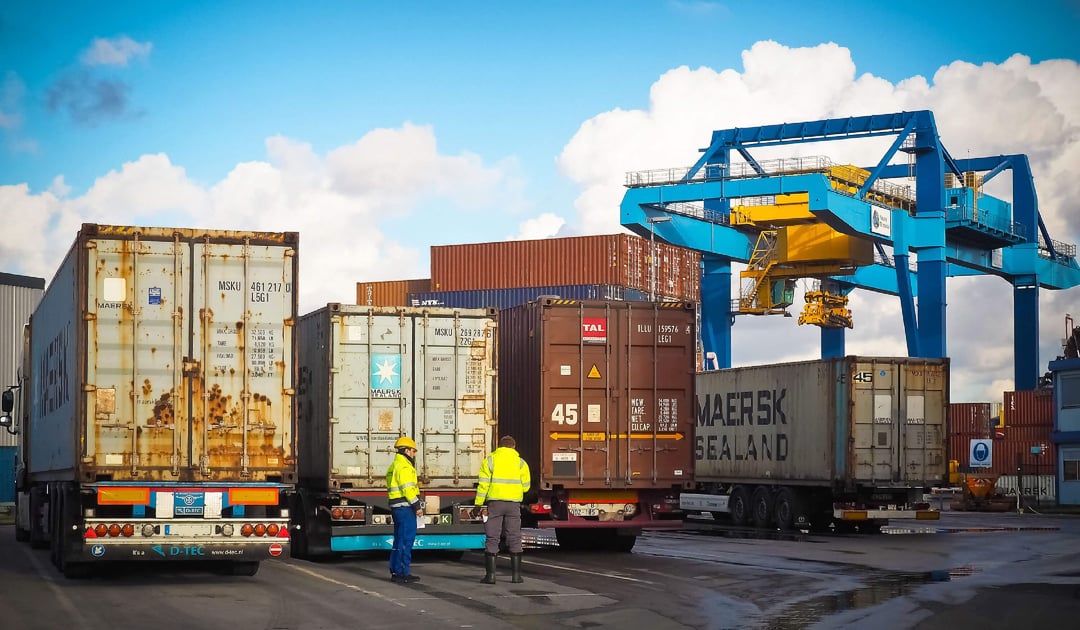The advantage of transloading in today's supply chain cannot be limited to singular form. In fact, the benefits of transloading services - put simply, the transfer of goods from one transportation mode to another (and often from one container to another) - can include cost savings, improved flexibility, faster shipping and more. With the caveat that every case has its own particularities, let's go over some of the general advantages of transloading:
- Faster customer transit times
While the act of transloading does take time (think one to three days), by not limiting to one particular mode of transport, transloading allows you to take advantage of the various forms of freight transportation available to choose the fastest possible combination for your needs. Speed is also improved by other transloading efficiencies when well-planned.
- Flexibility for better product positioning
Particularly for maritime freight, since it stops at a port for staging ahead of its next move, a shipper can shift the load based on current needs. So if a product is out of stock in one region and plentiful in another, the shipper can reprioritize the destination of the load.
- Distribution Center Optimization
In some cases, you may not need distribution centers (aka DCs) at all, as you can group goods while transloading and ship them straight to their final destination. If DCs are still needed, at the very least, additional steps can be removed by performing a series of value-added services at the time of transload.
- Ability to reach more destinations
This may seem obvious, but don't forget that transloading gives you options to use whichever combination of freight transportation options is best to reach a given destination. With these combinations, it also means loads can reach just about anywhere.
- Save container inventory, and cost
Steamships are placing a premium on their maritime freight containers, with costs rising exponentially throughout 2021 partly due to supply and demand issues. By transloading at the port, you're using that container less than if it continued on over land, therefore you're paying a bit less. And as an added benefit, the container is returned to circulation faster for the next shipment.
And with all the above-listed benefits out of the way, you're probably thinking, "how much?" Read on to see more about how cost factors in.
Can Transloading Save Money?
The short answer is, yes, transloading can save money in many shipping scenarios. Those cost-savings can come due to process advantages that improve overall efficiency. They also come from a perhaps little-thought-of advantage - the buy three get one free rule (or sometimes even the buy two get one free rule) for maritime freight. That is, for transloads that involve the transfer of maritime freight onto domestic containers, cubic meter availability differs between the two methods in an advantageous way.
Maritime freight ships in 40' ocean containers, while domestic freight generally moves in 53' containers via either truck or intermodal methods. Generally, we've found the contents of four ocean containers fit into three domestic containers - and often, three ocean container contents fit into two domestic containers. That means in essence, the shipper gets one ocean container moved domestically for free when transloading. Combined with the maritime container usage time advantage transloading provides, those are multiple chances for cost savings.
Help with Transloading
While we've gone over advantages of transloading, remember that to realize those benefits, planning is key. In today's logistics environment, transloading is only growing, and growing, and growing. But complications with transloading can be many, including labor shortages, capacity issues, floor-loaded vs. palletized loads, bonded vs. non-bonded, and more. Navigating these complications can be... complicated.
If you're ready to take the next step, at InTek Freight & Logistics, we can help. Just tell us what you need and we'll discuss how our expertise can help with the unique shipping challenges your business faces. Rather do a bit more research first? View our Freight Guides for comprehensive articles and eBooks on all things freight and logistics.



